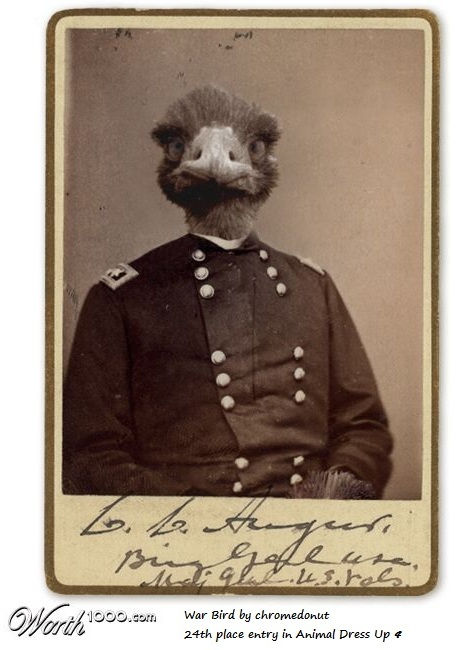The Great Emu War – Aussies vs. Birds
Everyone agrees that birds are weird. Whether you love birds, or blame them for bridge collapses, you know that they are fascinating and strange. Imagine for a moment declaring war on a particular species of bird – absurd!
Not so much if you are the Australian army in the 1930s. Likely running low on humans to hunt down, the Aussie army turned their attention to those arrogant Emus.
This is the story of how Australia declared war on a bird, and then promptly lost that war.
Bird is the Word
Emus are not the most dangerous bird in the world. They lag behind the cassowary in that regard. Don't mention it to the emus, they can be quite sensitive.
Although flightless, the emu still has the instinct to travel for breeding. They generally live around the coastal regions of Australia. But when the time comes for making babies, they head into Australia's barren heart. Normally that wouldn't be a problem.
Campion Australia was founded by ex-soldiers in 1924 as part of the Soldier Settlement Scheme. The town was built near a lake and featured several newly cultivated wheat farms. For 7 years the Campionites lived in peace, until the damned birds arrived.
Emu scouts got wind of the plentiful food and water available in Campion. They returned to their 'people' and soon the small town faced an invasion of 20,000 emus, hungry for wheat.
The birds destroyed fences, allowing their light footed allies, the rabbits, to swarm in. Soon crops were being ravaged and farmers were locked in a fight for their lives against the avian insurgency. 1932 was starting to look like the end of Campion.
Farmers, albeit ex-soldier farmers, just didn't have the manpower or tech to fight the flightless birds. They petitioned the minister of defense, and he promised them men and machine guns.
The stage was set for war.
The Great Emu War
Australia's Army arrived on 2 November 1932. They brought the requested machine guns and set out in search of their avian enemies. Soon the soldiers spotted a platoon of 50 emus.
Machine gun fire proved ineffective against the birds, who simply ran out of range of the humans' weapons. Locals attempted to herd the emus into range, but were outwitted as the birds split into smaller units to reduce their vulnerability to the hail of leaden death the army prepared for them.
On the first day of the conflict only a handful of birds had been killed. The soldiers retreated to their base, frustrated but undefeated. Plans had to be rethought. Their enemy was smarter than they had anticipated.
Major Meredith laid an ambush for the emus on 4 November. The soldiers set up near a dam and waited. Soon enough they spotted a huge enemy force approaching. Over 1000 emus had shown up for the battle.
Having learned from their mistakes, Major Meredith's soldiers waited for the enemy to be at spitting distance before opening fire. The guns roared to life but only for a moment. It seems that all the machine guns jammed at the same time, clearly caused by dark emu magic.
The emus retreated, having suffered only 12 casualties. Meredith was frustrated, and once more returned to base a failure. Plans were made, again, and tactics adapted. They would strike further south, where the emus were less vigilant.
Another strike was met with abject failure. Day 6 of the Great Emu war brought with it an abysmal report. Over 2,500 rounds had been fired by the humans, and only around 50 emus had been killed. Some estimated of the emu-casualties go as high as 500, but we know that's an exaggeration.
Australia Surrenders to Emu Command
The Australian Army was getting roasted in the local media. On 8 November 1932, the Australian House of Representatives discussed the state of the war, and pressured the minister of defense to surrender.
Dominic Serventy, an Ornithologist, had this to say about the Emu Army:
“The machine-gunners’ dreams of point blank fire into serried masses of Emus were soon dissipated. The Emu command had evidently ordered guerrilla tactics, and its unwieldy army soon split up into innumerable small units that made use of the military equipment uneconomic. A crestfallen field force therefore withdrew from the combat area after about a month.”
Sir George Pearce, the minister of defense, called off their war with the flightless birds. Major Meredith duly retreated and left the field to the emus. The birds won in the end, and soon the town of Campion was abandoned to the birds. Today, Campion is a famous ghost-town.
Australia today lives in a tentative peace with the emu-nation. The emu is on their coat of arms, likely as appeasement and an attempt to engender a sense of national pride in the birds.





Comments